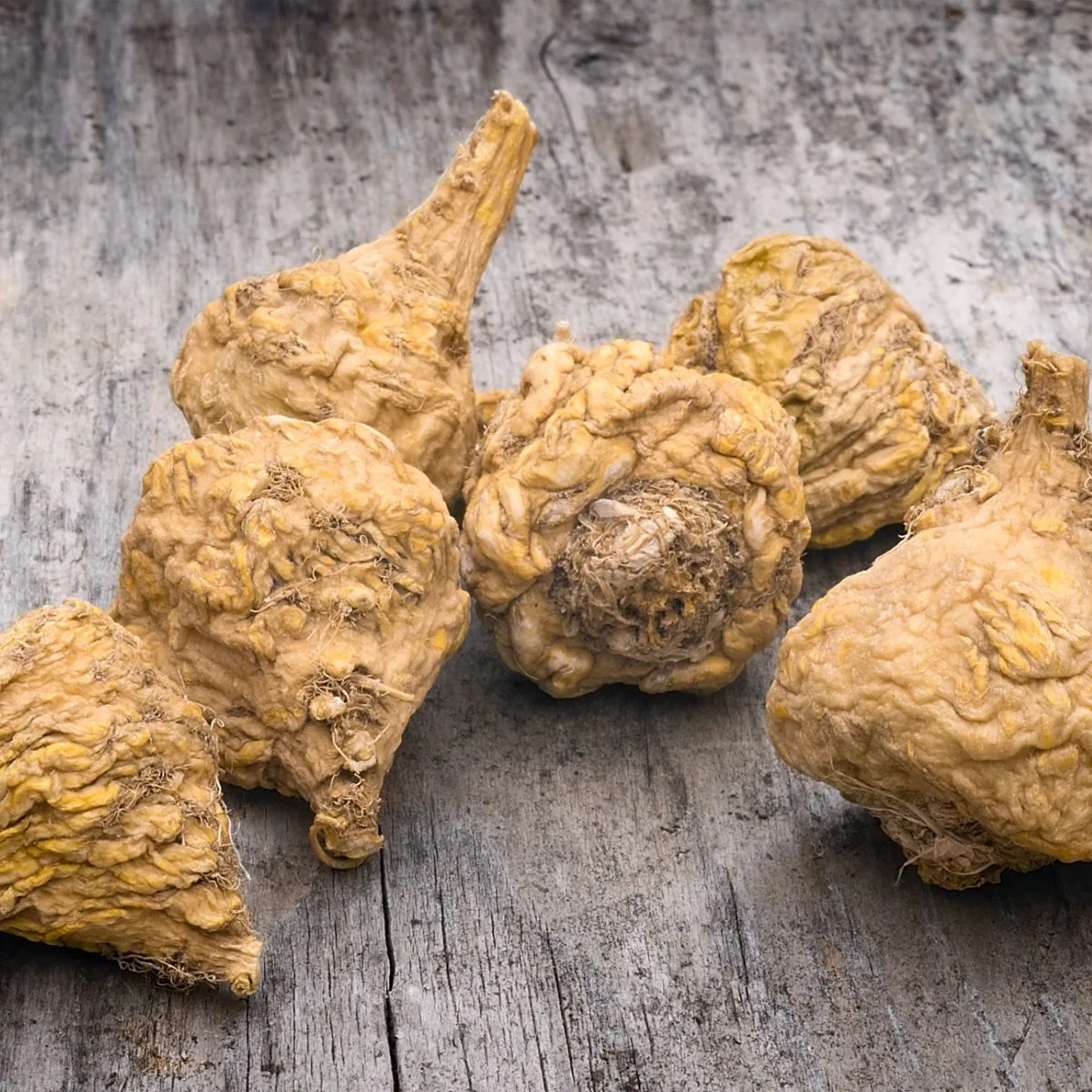Maca root, a staple in Peruvian culture for centuries, has gained popularity worldwide for its supposed health benefits, ranging from increased energy and stamina to enhanced sexual health and mood improvement.
However, like any supplement, it’s crucial to understand the potential side effects and risks associated with its use.
Maca Root – The Possible Side Effects:
Hormonal Effects and Endocrine Disruption
One of the most significant concerns with maca root revolves around its impact on hormone levels.
Maca is often touted for its ability to balance hormones, particularly in women experiencing menopause or those with hormone-sensitive conditions like endometriosis.
However, this hormone-modulating effect is a double-edged sword.
Maca contains plant compounds that can mimic estrogen in the body, which may exacerbate conditions sensitive to estrogen, such as breast cancer, uterine fibroids, or endometriosis.
While some women may find relief from menopausal symptoms like hot flashes and night sweats, others may experience worsening symptoms or hormonal imbalances.
Therefore, individuals with hormone-sensitive conditions should approach maca with caution and consult a healthcare provider before use.
Gastrointestinal Issues: Nausea, Bloating, and Cramping
Digestive discomfort is a commonly reported side effect of maca root.
Many users have experienced symptoms such as nausea, bloating, and abdominal cramping, particularly when first introducing maca into their diet.
These symptoms are typically mild and may diminish as the body adjusts to the supplement.
The root’s high fiber content could be a contributing factor, as fiber can lead to increased gas production and bloating, especially in individuals with sensitive digestive systems.
To mitigate these effects, it is recommended to start with a small dose of maca and gradually increase it, allowing your body time to adjust.
Additionally, consuming maca with food may help reduce gastrointestinal discomfort.
Potential Allergic Reactions: Rare but Possible
Although rare, allergic reactions to maca root can occur, particularly in individuals with sensitivities to plants in the Brassicaceae family, which includes broccoli, cabbage, and kale.
Symptoms of an allergic reaction can range from mild, such as itching and skin rashes, to severe, including difficulty breathing and anaphylaxis.
If you have a known allergy to similar plants or experience any unusual symptoms after consuming maca, it’s crucial to discontinue use immediately and seek medical attention.
As with any new supplement, it’s advisable to introduce maca into your diet gradually and monitor your body’s response.
Psychological Effects: Anxiety and Mood Changes
Maca root’s influence on mental health is another area of concern.
While some studies suggest that maca can improve mood and reduce symptoms of depression, particularly in postmenopausal women, others have reported increased anxiety, agitation, and mood swings as potential side effects.
The root’s adaptogenic properties, which help the body resist stress, could also overstimulate certain individuals, leading to heightened anxiety or irritability.
If you have a history of anxiety disorders or are sensitive to changes in mood, it’s essential to monitor your psychological state closely when taking maca and consider reducing the dose or discontinuing use if adverse effects occur.
Sleep Disruption: Insomnia and Restlessness
Maca root is often praised for its energy-boosting properties, but this can sometimes lead to unintended consequences, such as insomnia or restlessness, particularly when taken later in the day.
The stimulating effects of maca may interfere with your ability to fall asleep or stay asleep, resulting in poor sleep quality and daytime fatigue.
To minimize the risk of sleep disruption, it’s advisable to take maca earlier in the day, preferably in the morning, to allow the stimulating effects to wear off by bedtime.
If sleep disturbances persist, you may need to adjust your dosage or consider discontinuing the supplement.
Menstrual Irregularities and Heavy Bleeding
For some women, maca root can lead to changes in the menstrual cycle, including irregular periods or increased menstrual flow. This side effect is likely related to maca’s impact on hormone levels, particularly its estrogenic effects.
While some women may find that maca helps regulate their cycle, others may experience heavier or more painful periods.
If you notice significant changes in your menstrual cycle after starting maca, it’s important to discuss these symptoms with your healthcare provider, especially if you have a history of menstrual disorders.
Cardiovascular Concerns: Blood Pressure Fluctuations
Maca root’s influence on cardiovascular health is a subject of ongoing research, with some studies suggesting it may have a beneficial effect on blood pressure.
However, there are also concerns that maca could cause fluctuations in blood pressure, particularly in individuals with pre-existing conditions.
Some users have reported experiencing both elevated and decreased blood pressure after taking maca, which could be problematic for those with hypertension or hypotension.
If you have a history of cardiovascular issues or are taking medication for blood pressure management, it’s crucial to monitor your blood pressure regularly while using maca and consult your healthcare provider to determine whether it’s safe for you.
Interaction with Medications: A Potential Risk
Maca root can interact with certain medications, particularly those that affect hormone levels or blood pressure.
For example, individuals taking hormone replacement therapy (HRT) or oral contraceptives may experience altered effectiveness of their medication when using maca, due to its hormone-modulating effects.
Additionally, maca may interact with blood pressure medications, potentially leading to unpredictable changes in blood pressure.
If you are taking any prescription medications, it’s essential to consult with your healthcare provider before adding maca to your supplement regimen to avoid potential interactions and side effects.
Takeaway
While maca root offers a range of potential health benefits, it’s not without its risks.
Understanding the possible side effects and how they might affect you personally is crucial before adding maca to your daily routine.
Always start with a low dose, monitor your body’s response, and consult with a healthcare professional, especially if you have pre-existing health conditions or are taking other medications.
The promise of enhanced energy, mood, and sexual health can be appealing, but it’s essential to weigh these potential benefits against the risks.
With careful consideration and proper guidance, maca root can be a valuable addition to your wellness toolkit, but it’s not a one-size-fits-all solution.
Always prioritize your health and well-being by staying informed and making choices that are best suited to your individual needs.
